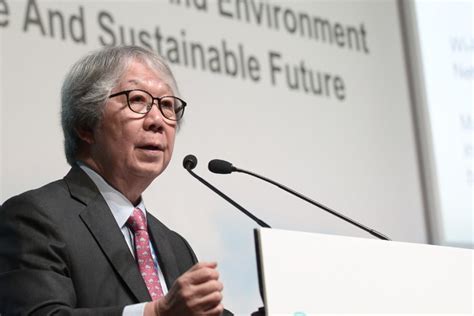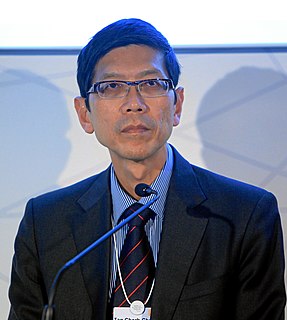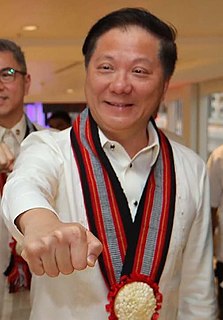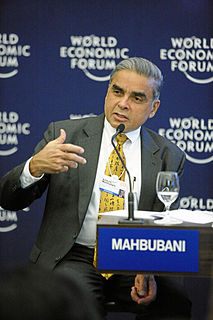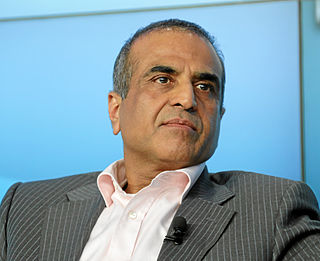A Quote by E. O. Wilson
It was inspiring to learn of the new Bachelor of Environmental Studies Program, and I congratulate you for it. Singapore is geographically in the right central position for an influence in Asia and Australia, and NUS has the reputation and academic strength to make it effective.
Related Quotes
The environmental issues we face today are complex and span many knowledge domains. This undergraduate degree programme in Environmental Studies will nurture a pool of graduates who are able to think deeply and broadly about these issues, and help develop novel solutions for Singapore, Asia and beyond. I am delighted at this programme for another reason - it is the first undergraduate course that draws on expertise from eight Faculties in NUS, making full use of the comprehensive strengths of our University.
This is a timely and relevant initiative. The environmental challenges facing Singapore and the region are becoming more complex. Tackling them will require inter-disciplinary approaches combined with a good understanding of science, economics and governance aspects. The NUS Bachelor of Environment programme will fill a much needed gap in the current framework. NEA is pleased to be a partner to this programme.
The 21st century will be the Asian century. This also means that Asians will be expected to provide greater leadership to solve global challenges, including environmental challenges. Hence, this multi-disciplinary programme from NUS could not be more timely. It meets a pressing need to educate, train and empower leading players in the public, private and civil society sectors in Singapore, Asia and the world.
You have to negotiate from positions of strength. And right now with Iran, we're not negotiating from a position of strength. The Europeans are negotiating from the position of "Please give up your nuclear weapons program, and by the way if you do we'll give you several boatloads of carrots." The Iranians are quite willing to keep on negotiating on that line for a long time.
The close of my studies with a degree of a Dr. Ing. in 1929 coincided with the great economic crisis, and I was not able to find an academic position. I was therefore very grateful for a position in the newly created laboratory of G.J. Driza in Prague where rare chemicals were produced on small scale.
In my wide travels across the world and my meetings with various heads of states, be that Africa or South Asia, Singapore or in high level meetings in the U.S., U.K. or Japan, one common mention is about Dr. Singh's extraordinary reputation as a Wise Man, an outstanding Economist and a fine Gentleman.
The effective executive knows that it is easier to raise the performance of one leader than it is to raise the performance of a whole mass. She therefore makes sure she puts into the leadership position, into the standard-setting, the performance-making position the person who has the strength to do the outstanding pacesetting job. This always requires focus on the one strength of a person and dismissal of weaknesses as irrelevant unless they hamper the full deployment of the available strength.
What they don't realize is that I'm not in the business to make clothes. I'm not in the business to make more money for myself, for Christ's sake. This is the reason Patagonia exists - to put into action the recommendations I read about in books to avoid environmental collapse. That's the reason I'm in business - to try to clean up our own act, and try to influence other companies to do the right thing, and try to influence our customers to do the right thing. So we're not going to change.

